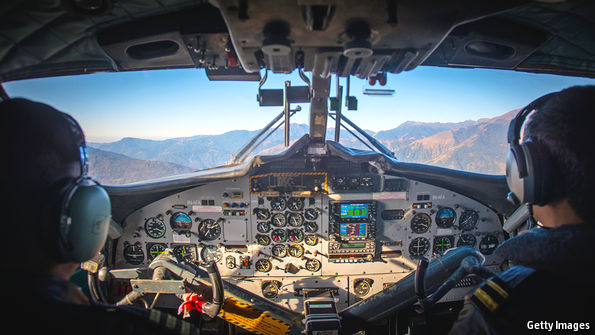Flight response
 Just relax and enjoy the view, Captain
Just relax and enjoy the view, CaptainON JUNE 1st 2009, an Air France airliner travelling from Rio de Janeiro to Paris flew into a mid-Atlantic storm. Ice began forming in the sensors used by the aircraft to measure its airspeed, depriving the autopilot of that vital data. So, by design, the machine switched itself off and ceded control to the pilots. Without knowing their speed, and with no horizon visible in a storm in the dead of night, the crew struggled to cope. Against all their training, they kept the plane’s nose pointed upward, forcing it to lose speed and lift. Shortly afterwards the aeroplane plummeted into the ocean, killing all 228 people on board.
French air-accident investigators concluded that a lack of pilot training played a big part in the tragedy. As cockpits become ever more computerised, pilots need to keep their flying skills up to date. But pilots are also in short supply. In July Airbus predicted that 500,000 more will be needed by 2035 to keep pace with aviation’s expected growth. That means there is pressure to keep aircrew in their cockpits, earning money, rather than in the simulators, taking…Continue reading
Source: Economist




